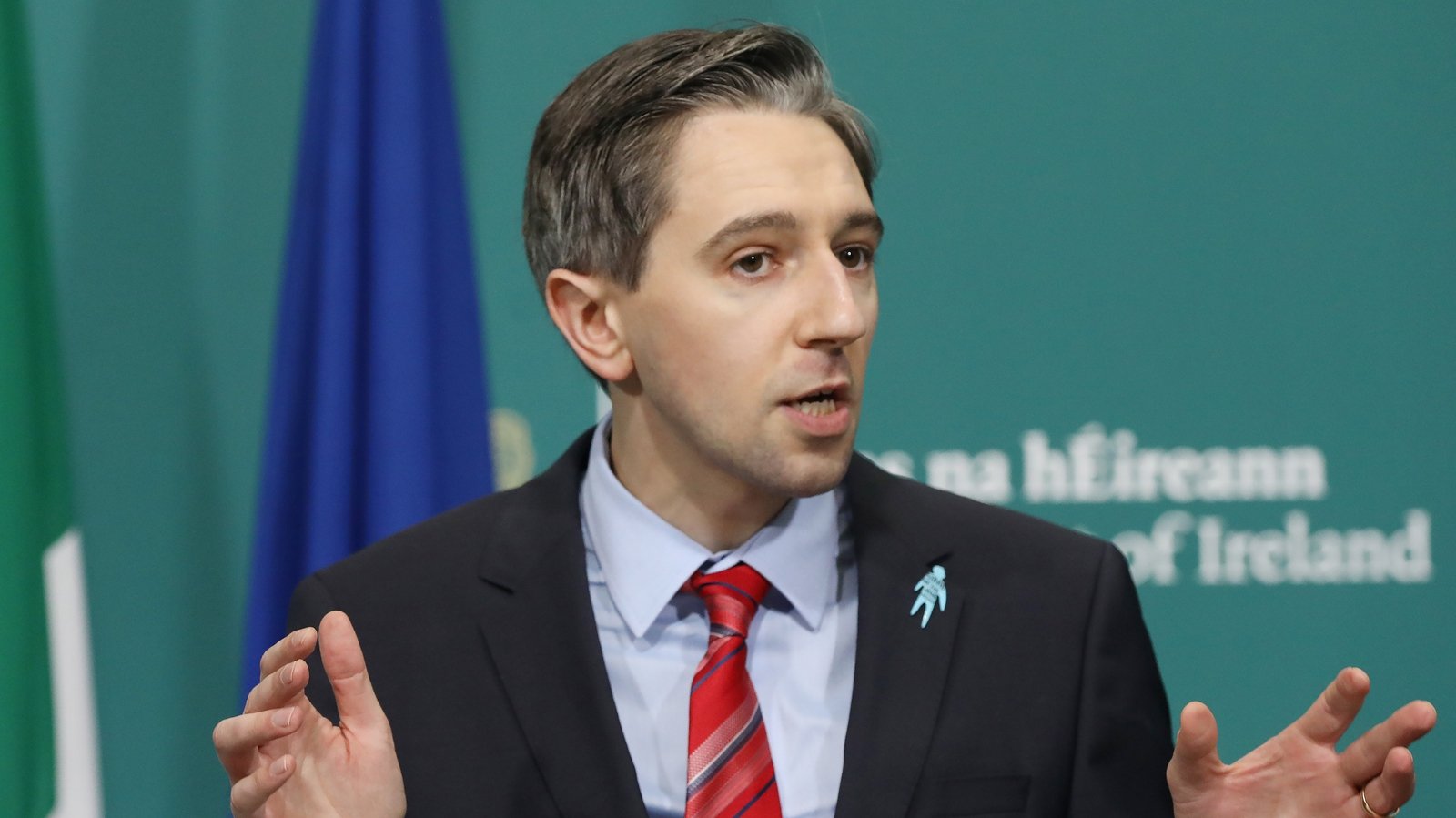Sunak weighs up election call after tough 2023

Rishi Sunak must be wondering what he has to do to win the confidence of his party and the British public while he weighs up the best time to call an election in 2024.
Even though he has brought some stability to government after the turbulence of the Johnson and Truss premierships he remains unpopular with both voters and party members.
Over this first year as Prime Minister he also brokered a deal on the Northern Ireland Protocol which did get Brexit finally done.
He made good on this pledge to halve inflation.
Small boat crossings are a major concern among Tory voters but the numbers arriving are down by 30%.
Mr Sunak’s government has brought in legislation to deal with Supreme Court concerns about the plan to send such arrivals to Rwanda, but this has yet to be passed by parliament.
Inflation and small boats were two of his five pledges made in January 2023 and to be achieved within a year.
Two other pledges to grow the economy and to reduce debt could still get over the line.
His promise to cut hospital waiting lists may not be achieved even though he announced a £2.4 billion plan to increase the numbers of doctors, nurses and other medical workers.
He is blaming the lack of progress on this year’s industrial actions in the health service.
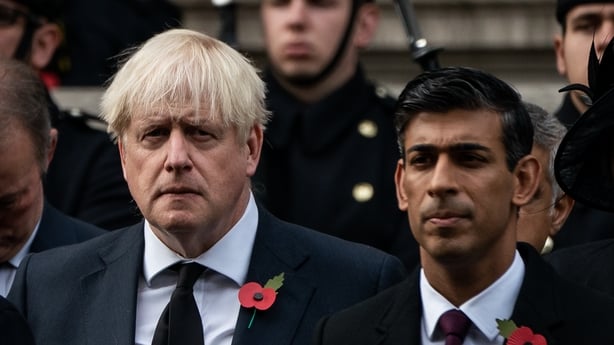
Despite his efforts, his popularity with the public sunk to a record low in early December with a net favourability of -49, according to YouGov.
That puts him just below Boris Johnson when he resigned as prime minister.
Mr Johnson was -46 immediately after he stepped down in the wake of Partygate and a series of other controversies.
While Mr Sunak is relatively unscathed by scandal, he seems to be at a low ebb even among his own party faithful.
The ConservativeHome website for party supporters has a monthly ranking for cabinet members and the latest one had the prime minister on minus -25.4, which is his lowest ever.
He had the worst score of all the 32 top Tories (Trade Secretary Kemi Badenoch has the best).
And the Conservative Party itself is on 24% among intending voters, according to IPSOS, which is a full 17 points behind Labour who are on 41%.
There is unlikely to be any general election called early in the new year with figures like that.
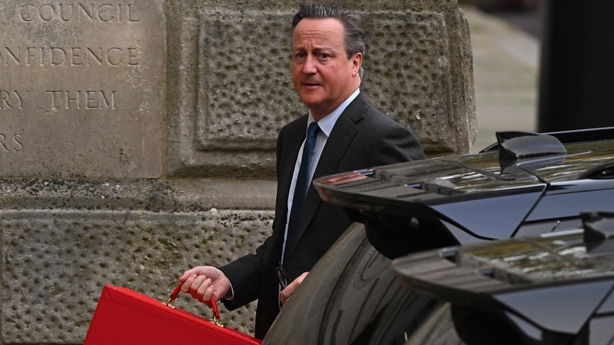
When David Cameron agreed to come in as foreign secretary the conventional wisdom was that he would not have agreed to that unless he was going to be given a reasonable length of time in the job.
And this lent weight to the speculation for a possible election date in October.
The latest date would be in January 2025.
The other probable date is thought to be next May.
However, it might prove to be a tight deadline to get the flights to Rwanda up and running beforehand.
And that is supposing that Mr Sunak remains in control of events.
As the convulsions within the Conservative Party have shown over the past seven years, that is not a given.
There are suggestions that letters of no confidence are being sent to the chairman of the 1922 Committee and if the number reaches 53 that would trigger a vote on his leadership.
It has been suggested that the party could end up with another leadership heave by accident.
Although it is thought unlikely that he would lose a ballot of MPs it would put further pressure on him.
Already there are signs that pressure may be getting to him.
Mr Sunak abruptly cancelled a meeting with the Greek prime minister because of a remark about Britain’s possession of the Elgin Marbles that were taken from Greece.
Commentators were struggling to explain the rationale for such a serious snub to a fellow European leader except as a way of pleasing the hard right of his party.
In any event it did not do his poll numbers any good and was thought to be a factor in his recent slump.
Then there was his emergency press conference ahead of the Rwanda vote.
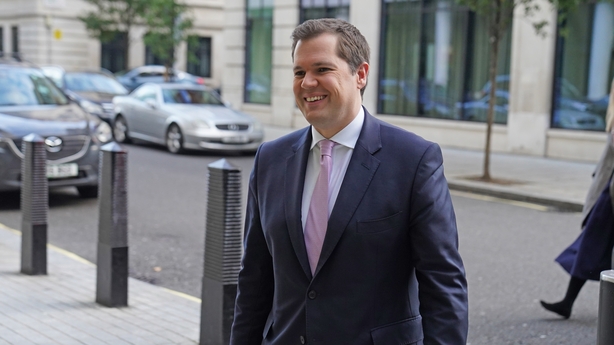
It followed the sudden resignation of Immigration Minister Robert Jenrick, who said the new Rwanda bill did not go far enough in stopping legal actions against deportations.
Mr Sunak’s subsequent appearance at the press conference was described as “tetchy”.
For someone whose image relies on calmness and reasonableness it was not considered a reassuring performance.
Moderate Tory voices, such as former attorney general Geoffrey Cox, said the Rwanda bill does as far as possible in limiting legal challenges.
Mr Cox said that if the bill had sought to prevent all legal challenges against deportation it would have such a far-reaching effect on civil liberties that it could provoke a constitutional dispute with the British legal system itself.
The Rwanda bill was already considered to be in conflict with international human rights law and centrist Tories had threatened to oppose any further disregard of the European Convention on Human Rights and the UN Refugee Convention.
But despite his painstaking legal drafting and political balancing Mr Sunak had to endure a torrent of criticism.
The fact that detractors suddenly included Mr Jenrick, who Mr Sunak would have once considered one of his closest allies and a friend, must have come as a shock.
Mr Jenrick dismissed the bill as a “triumph of hope over experience”.
There were suggestions that Mr Jenrick is setting himself for future leadership or front bench ambitions.
Mr Sunak might have to put up with more of that.
It has been widely anticipated for some time that if, as expected, the Conservatives lose the next election, the party base will turn towards a new and harder-right wing leader.
Nigel Farage has even been touted as a possible replacement.
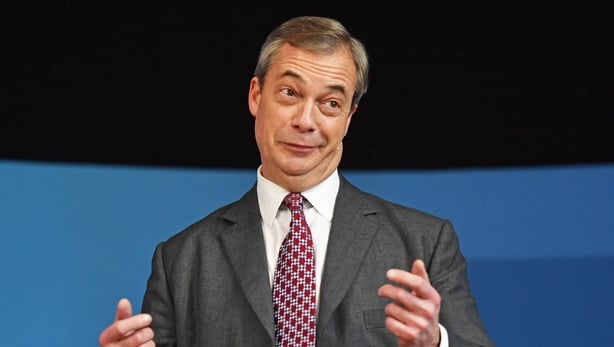
The day before the vote on the Rwanda bill up to 100 Tories were reported to be considering voting against it.
It seemed like Brexit all over again.
Suddenly the European Research Group (ERG) was centre stage.
Conservative MPs were talking about leaving the European Convention on Human Rights as if it would be a painless solution just as a no-deal Brexit was once being touted as sensible.
In the event the threatened rebellion did not produce one single vote against the bill even though around 25 Tory MPs abstained because of opposition to it.
The rebellion petered out just like it did with the vote on the Northern Ireland Protocol.
The swashbuckling style of the hard right does not have the allure it once had just as the reality of Brexit does not match the promises that were made.
However, there is still that hard right vote among the Conservative Party membership that any prospective leader will have to win over.
And the Tory vote in any future election will be threatened by Reform UK which is a ‘further right’ party campaigning on immigration control and free market policies.
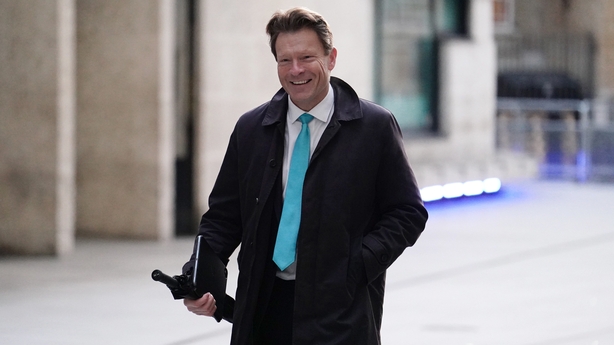
Its leader Richard Tice has explicitly said he will take on the Conservatives in each constituency in the next election.
The vote for Reform UK in the Tamworth and Mid-Bedfordshire by-elections matched the Labour Party’s narrow winning margin in both counts.
This heaps further pressure on the direction of the Conservatives.
It might be said that Mr Sunak should be admired for this tenacity in trying to make his leadership a success and to win the next election given all of the criticisms and fatalism he has to endure.
However, many British people have shown they have had enough after 13 years of Conservative rule by their votes in a series of spectacular by-election upsets for the government.
It is a question of how much longer Mr Sunak will be given to turn things around.


